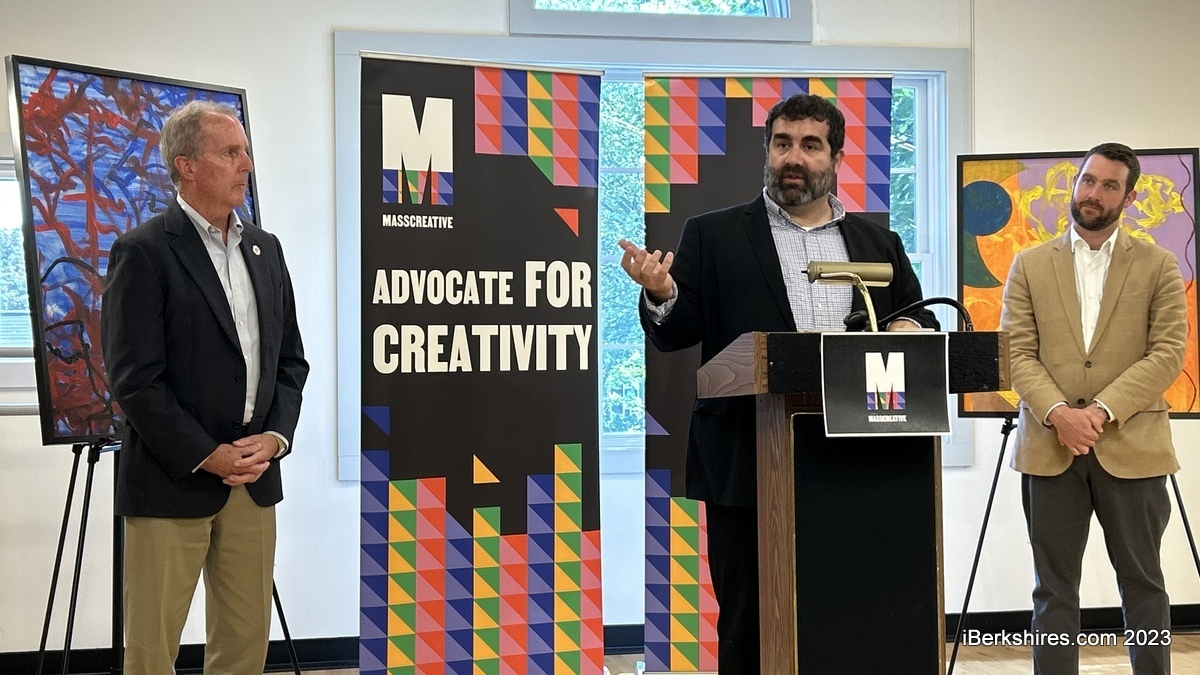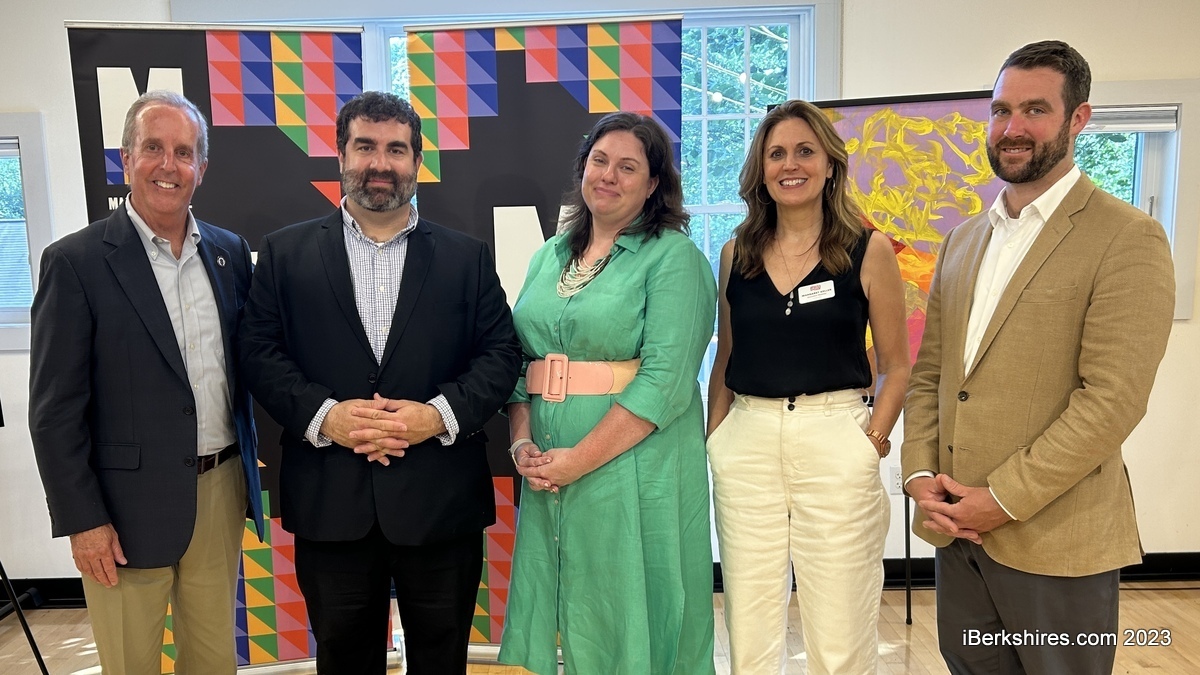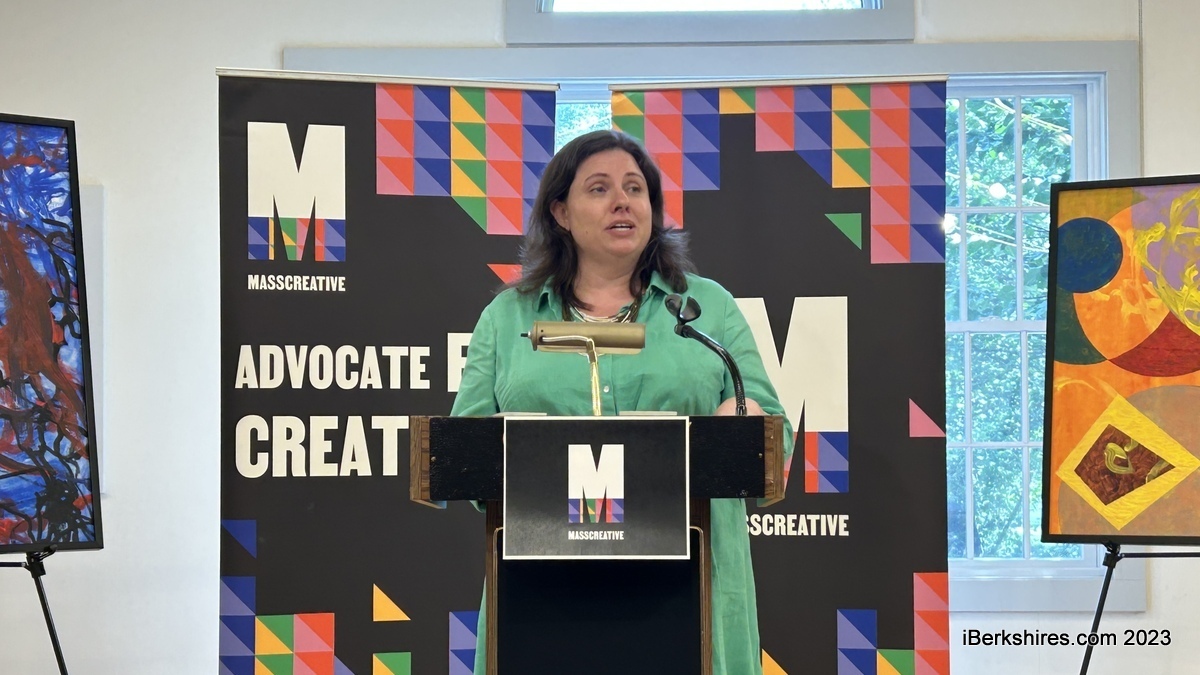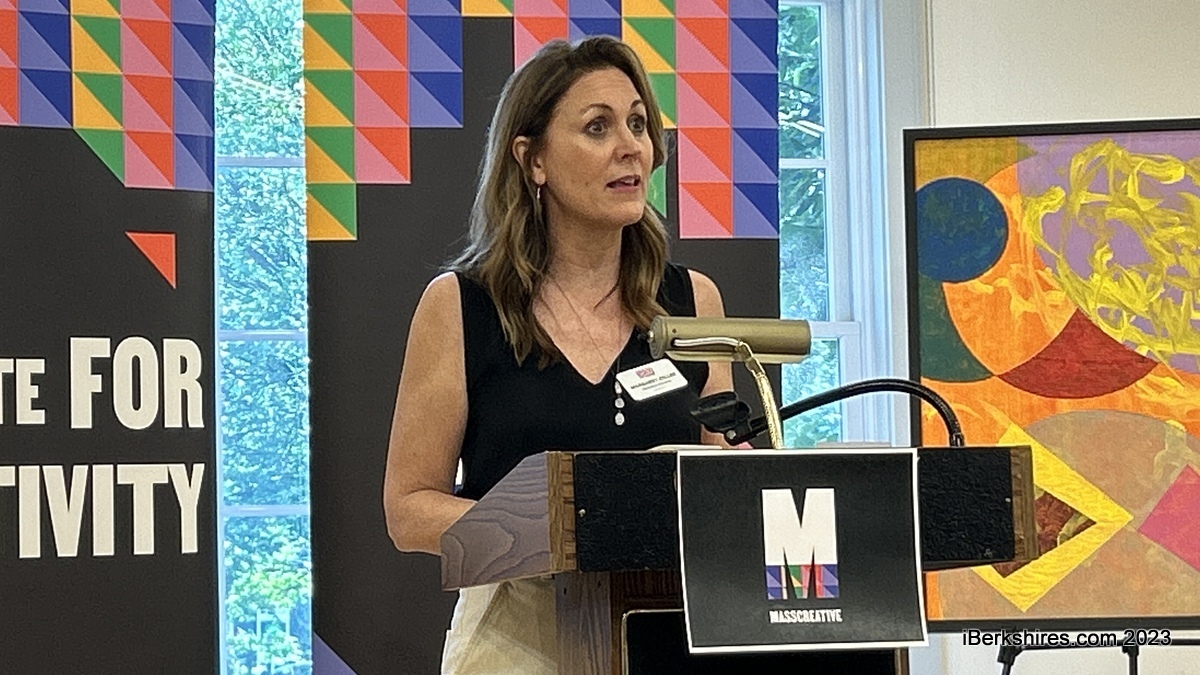


State Officials Promote Act for Accessible Creative Economy

GREAT BARRINGTON, Mass. — Local lawmakers and the cultural leaders on Friday called for the inclusion of people of all abilities in the creative economy.
The proposed Accessibility in the Creative Economy Act would would provide grants to organizations focused on arts, culture, humanities, and interpretive sciences that remove barriers for people with disabilities.
Community Access to Arts Executive Director Margaret Keller emphasized that art is for everyone.
"We are missing out as a community, as a culture, and as a commonwealth when we fail to include everyone," she said during a press conference at CATA on Friday. "We're missing out on the perspectives of people with disabilities as art lovers and as artists and we are missing out on the power of art itself to capture and represent the fullness of human experience."
The ACE Act is sponsored by state Sen. Paul Mark and state Rep. Daniel Donahue of the 16th Worcester District. The act would establish a fund and dedicate more monies through the Massachusetts Office on Disability for cultural organizations, support capital improvements for access, and create an 11-member board to make recommendations on grant criteria.
"The arts and the creative sector are such an important part of our economy here in the Berkshires and when we think about the possibility that any segment of our population might be left out of that it's a shame. It's not right," Mark said.
"It's keeping people back. It's keeping people out of access to economic opportunities, opportunities for education, opportunities to include participants in our region in our economy."
He said it is especially important to be talking about this at CATA because of its mission.
The organization connects people with physical or developmental disabilities to the arts through more than 50 program partners. This year, CATA expects to engage 1,000 artists with new talents in dance, theater, music, poetry, painting and more.
Mark said the state budget should be wrapped up next week and lawmakers will start on policy matters after Labor Day. From now until then, he said, is an important time to advocate for bills such as this by reaching out to legislators and members of the Committee on Children and Families.
Donahue said good policy is all about getting together and talking about what communities need. To him, this fits the bill.
Worcester consistently faces challenges with older buildings, especially spaces that hold the arts.
"When we go and we try to reinvigorate some of these older buildings that I have in my district, accessibility is a major part of that," Donahue said. "And when it comes down to it, funding is a major problem for so many organizations."
He works closely with the Worcester Boys and Girls Club, which wants to turn its 1905 building into a community art space for children and is seeing significant difficulty in bringing the structure up to modern codes.
"I'm really excited to push this forward," Donahue said. "And when it comes to the commonwealth, our priorities are very often expressed in where we put our money."
The event was held by the Mass Creative Action Network, which fights for policies that benefit cultural nonprofits, creative businesses, and individual artists in the state.
This bill is one of five pieces of legislation that came out of a dozen meetings held across the state to assess the creative sector.
"Many of us in this room already know that the creative sector can benefit all residents of the commonwealth. We know there's an economic angle that every time there is a cultural event, someone who attends that event is going to spend about $30 at restaurants and retail nearby and we also know that the cultural community is at the core of our $24 billion tourism industry," Mass Creative Executive Director Emily Ruddock said.
"But more importantly, we know that arts and culture connect us to each other, to our neighbors, and to our communities. They encourage empathy and in a recent study, residents in Massachusetts identified creative activities and programs as vital to their communities more so than the national average. However, the personal and communal benefits of the creative sector aren't readily available to everyone."
In 2022, Open Door Arts and the Massachusetts Cultural Council released their findings on the creative economy's accessibility in the report "Towards a Culture of Access: Findings From the Massachusetts Arts & Culture Access Survey."
The report showed that one in four adults and half of adults aged 65 and older in Massachusetts have one or more disabilities yet they continue to experience significant barriers that keep them from fully participating in arts and cultural organizations.
Ruddock said many organizations have identified ways to make their programs universally acceptable but lacked the funding to implement changes.
"We know that because the benefits of arts and culture are so many that one group should not be excluded," she said. "And that was one of the reasons that we've worked with Senator Mark and Representative Donahue to file the Accessibility in the Creative Economy Act."
State Rep. William "Smitty" Pignatelli of Lenox, who is co-sponsoring the bill, thinks the creative economy is the economic driver of the Berkshires and needs to be embraced.
"I don't like the word 'disability.' I've never liked that. I look at it as a 'different ability' and anybody who doesn't believe that — all you have to do is show up to a CATA event and you'll see. I admire the people who perform on stage with different abilities, abilities that I wish I had. So I don't like that word 'disability,'" he said.
"And I think the other thing that's really important, and I can't think of a better organization than CATA to really make this announcement, is the word 'community.' Community is there for everyone regardless of their abilities and I think that's what this fund could do, will do, and I think we're really building some momentum."
Tags: accessibility, CATA, creative economy, MassCreative,















